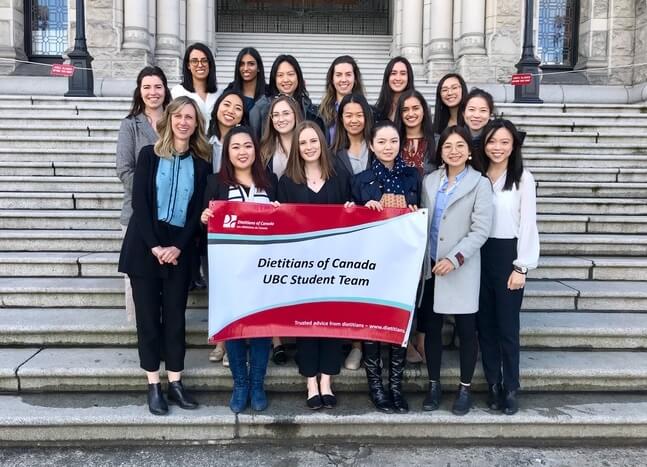All Categories
Featured
Table of Contents
The kinds of Nutritionists are: and. The former are those individuals that utilize the scientific method to research nutrients, both as individual compounds and as they connect in food and nutrition while the latter are specialists that assist in diagnosing the nutritional troubles of communities and in discovering solutions to those troubles.
: They deal with health cares and worldwide wellness organizations.: They are accountable for massive food planning and service.: They are professionals in nourishment and aging. They are Board certified in Gerontological Nutrition with the American Dietetic Association.: They are mainly entailed with dietary related research study in the scientific facet of nutrition in disease states, public aspect on primary, secondary and often tertiary health and wellness avoidance and foodservice aspect in issues including the food gotten ready for individuals.
What Is The Best Registered Dietitian Nutritionist Product?
, and newspapers-- either as a specialist visitor point of view, normal columnist or guest, or for resource, restaurant, or recipe growth and critique.: These work under personal technique. As discussed above, all dietitians are nutritionists however not all nutritional experts have the credentials and certifications to be called dietitians.
This suggests exactly the same point as Registered Dietitian (RD), a term that has actually remained in usage for a long time. All RDs are RDNs but some pick to call themselves that and some do not. Even more making complex issues are license requirements. While certification to come to be an RD or RDN is controlled by the Academy of Nutrition and Dietetics a nationwide organization licensure is regulated by individual states.

In order to supply clinical nutrition therapy and certify as suppliers for insurer, a dietitian has to be certified by the state. According to the Bureau of Labor Statistics, the demand for dietitians and nutritionists is expected to enhance by 20% between 2010 and 2020 this is a much faster development rate than the standard for all occupations.
What Is The Best Dietitian?
There are substantial differences in payment based upon specialization, with Scientific Pediatric Dietitians and Dairy products Nutritionists averaging around $90,000. In 2014, The Bureau of Labor Data (BLS) located that the top 10% of dietitians and nutritionists make even more than $79,000, and the lower 10% less than $36,000 - Dietitian Consultant. A mean hourly wage of $27.62 was computed for both fields, with the top 10% earning above $38.00 per hour, and the bottom 10% earning listed below $17.00 per hour

There is a selection of work available in different atmospheres for those that want to work with the public, as well as for those who favor even more research-focused employment. Several enter among these fields in order to assist individuals live healthier lives which can be exceptionally rewarding.
- Our Choice for the Best in Karratha
- The Top Pick for in Kalgoorlie-Boulder
- Recommended around Karratha
With existing data that one-third of the united state populace is overweight, as well as a a great deal of elderly U.S. citizens, dietitians and nutritionists are most likely to have an extra extensive role in the future. My Plan rates dietitians and nutritional experts at # 53 in their joy index of top 300 professions with the greatest job satisfaction rankings.
Along with attending a certified program, the majority of states require dietitians to be licensed or to have specialist certification, or both. In comparison, only concerning fifty percent of states need such credentials for nutritional experts. Even so, many expert functions for nutritionists require at the very least a bachelor's degree, and the same certification is available for nutritionists and dietitians alike.
Is It Worth Paying For Accredited Nutritionist?
Your core courses might consist of: Food scientific research Chemistry Health and wellness treatment plan Scientific nourishment Biostatistics Microbiology Food service monitoring You'll additionally require to finish a dietetic teaching fellowship.

Whether composed in regulation or not, dietitians and nutritional experts numerous times require a similar education. Typical bachelor's levels for nutritional experts include nutrition science or an associated self-control, such as dietetics, kinesiology, food system administration, or biochemistry.
The number of hours you'll need may depend on needs in the state where you'll function. Whether you intend to earn a credential or otherwise, it's an excellent idea to complete at the very least one teaching fellowship to gain valuable experience before looking for a full time function. Licensing and accreditation needs for nutritionists and dietitians vary from state to state.
Is It Worth Paying For Certified Nutrition Specialist?
An expert qualification demonstrates your competence and knowledge in your area. These are not certification programs. A certificate indicates that you have actually taken a training program to discover an ability. Qualification shows your proficiency expands past your education and learning and that you've passed a qualifying examination. Right here are the leading certifications for dietitians and nutritionists.
The titles are essentially the same. There's no expert distinction in between them, and you're cost-free to pick which one you desire to utilize based upon personal preference. To take the accreditation exam, you must: Earn a bachelor's degree that's recognized by the ACEND Full a dietetics teaching fellowship After Jan. 1, 2024, you'll require to earn a master's degree to qualify for the qualification.
The Best Mental Health Dietitian Service?
Bureau of Labor Statistics places dietitians and nutritional experts in the same group and says they make a average annual wage of $69,680. There is a variety in wages, with the bottom 10% around $44,910 and the leading 10% around $98,830, according to the BLS. Nutritional expert and dietitian functions are expected to grow 6.6% with 2032, according to the BLS.
This doesn't imply that a person occupation is exceptional to the various other, as they both have different functions and qualifications that might in some cases overlap. If you want to discover more concerning what makes these professions distinct, keep analysis. Diet professionals are experts who help enhance the lifestyle with healthy and balanced food selections.
Who Has The Best Registered Nutritionist Service?
Nutritionist recommendations regarding nutrition's influence on health. The area is less controlled than diet professionals; thus, nutritional experts' degrees of expertise and qualifications can vary.
There are a number of differences between dieticians and nutritionists. Here are the training and background specs. Dieticians generally hold a bachelor's degree in dietetics, nutrition, or a related area. As their careers breakthrough, numerous dieticians go after postgraduate degrees, like a Master's or Doctorate, to specialise in details areas of nourishment. Dieticians must embark on monitored practical training as component of their education and learning to gain hands-on experience in clinical settings, area nutrition programs, or food service administration.
Latest Posts
Transparent Gym For Women Near Me (Perth)
Trusted Weight Management
Challenging Fitness Assessments Near Me